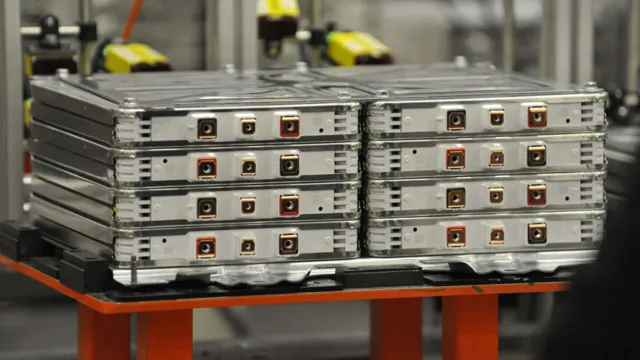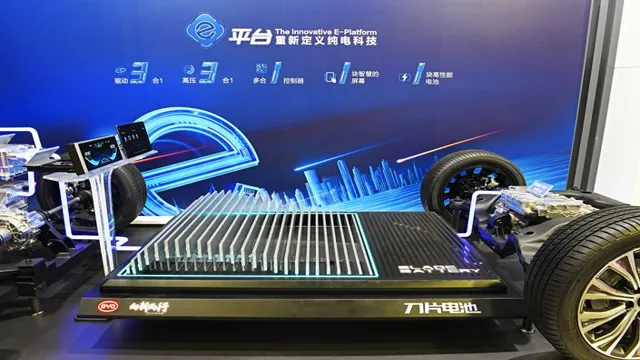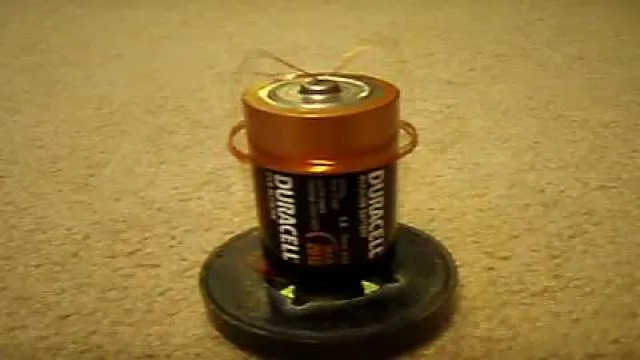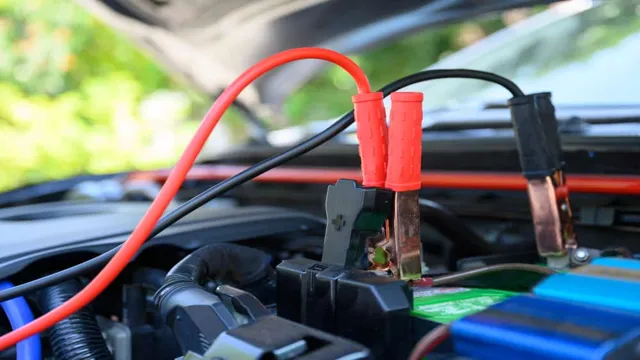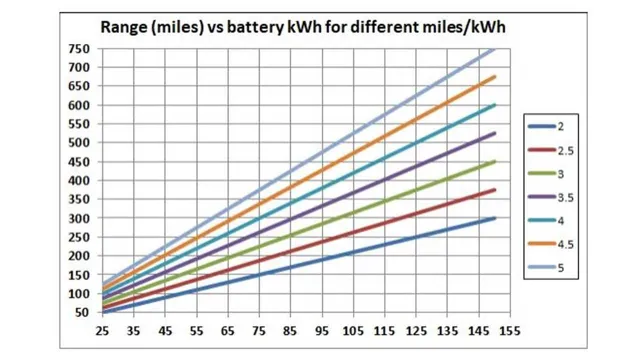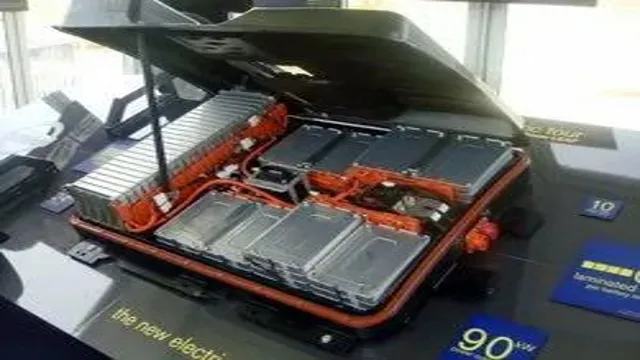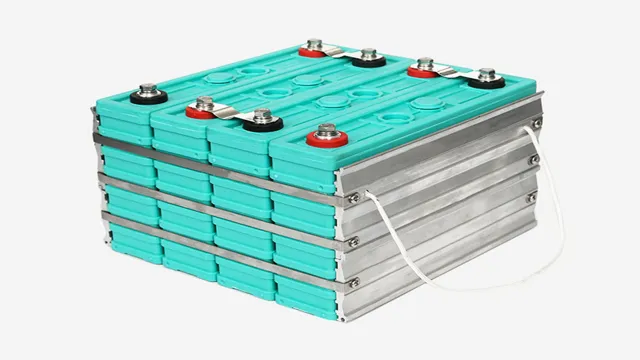Unveiling the Truth: Are Batteries in Electric Cars Really Recyclable?
Have you ever wondered what happens to all those electric car batteries after they die? With the rise of electric vehicles, this question becomes more important by the day. Electric car batteries are complex and sturdy, designed to last for tens of thousands of miles and years of use. However, once they reach their end of life, they can’t simply be thrown in the trash.
Recycling electric car batteries is far from an easy task, but it’s a crucial one for the environment. In this article, we will explore the potential consequences of not recycling electric car batteries, and why it is so important to do so. We will also delve into the complex process of recycling these batteries, and explore some of the innovative ways that researchers are working to make it even more efficient.
So buckle up, and let’s explore the world of electric car battery recycling!
Yes, electric car batteries are recyclable
Are batteries in electric cars recyclable? Yes, they are. In fact, recycling electric car batteries is an important component of sustainability and responsible waste management. Lithium-ion batteries, which are commonly used in electric cars, contain valuable metals that can be reclaimed, including cobalt, nickel, and lithium.
By recycling these batteries, we can reduce the environmental impact of mining these resources and extend the life of the metals used in production. Additionally, recycling these batteries can prevent toxic chemicals and heavy metals from entering the environment, which can cause harm to wildlife and pose a risk to human health. As the demand for electric cars continues to grow, it is important to prioritize responsible and sustainable management of their batteries.
The importance of battery recycling
Battery recycling is becoming increasingly important, not just for environmental reasons but also as a way to secure future supplies of the raw materials needed for new batteries. And yes, electric car batteries are indeed recyclable. In fact, the recycling process can recover up to 90% of the materials in a typical lithium-ion battery, such as cobalt, lithium, and nickel.
Some battery components, such as copper wiring and aluminum, can even be reused in new batteries. By recycling electric car batteries, we can minimize waste and reduce our reliance on mining for new resources. It’s a win-win situation.
So, let’s do our part by properly disposing of old batteries and supporting battery recycling initiatives.
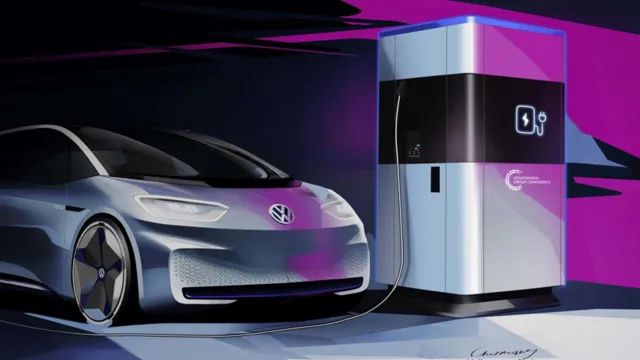
Environmental impact of not recycling batteries
As the world continues to shift towards electric cars, concerns about the environmental impact of their batteries have increased. However, it is important to note that these batteries are fully recyclable. If they are not properly disposed of, the toxins and chemicals in the batteries can have damaging effects on the environment.
Recycling not only helps to prevent this damage but also enables the materials in the batteries to be reused, reducing the need for new materials to be extracted and processed. This leads to a significant decrease in carbon emissions and a more sustainable approach to energy consumption. By recycling your electric car battery, you can play your part in creating a brighter and cleaner future for our planet.
How are electric car batteries recycled?
Yes, batteries in electric cars are recyclable. In fact, recycling the batteries is crucial for reducing the environmental impact of the electric car industry. The process starts with dismantling the battery pack and extracting the individual modules.
The modules are then shredded, and any remaining liquid is drained. The resulting metal shreds are smelted down and refined into new materials such as cobalt, nickel, manganese, and lithium, which can then be used to create new batteries. This process not only reduces the amount of waste but also conserves resources and reduces the need for mining new materials.
Additionally, many automakers and battery manufacturers are now implementing closed-loop recycling processes, where the recycled materials are used in new batteries, further reducing waste and saving energy. Overall, the recycling of electric car batteries marks an important step towards a more sustainable and environmentally conscious future.
Breaking down the battery
Electric car batteries are a vital component in the electric vehicle industry, and their recycling is essential for environmental sustainability. These batteries consist of different materials, including lithium-ion, cobalt, and nickel. The recycling process starts with the dismantling of the battery – the hazardous parts are separated and treated appropriately.
Then, the remaining materials are shredded and processed into powder. The recyclables, including metals like cobalt and nickel, are extracted and used to make new batteries. Additionally, recycling the battery reduces the environmental impact of producing new batteries, conserves natural resources, and minimizes pollution.
Therefore, it’s crucial to encourage everyone to recycle their electric car batteries to ensure a cleaner, greener future.
Separating the materials
When it comes to electric car batteries, recycling is becoming increasingly important. This is due to the fact that these batteries contain metals such as lithium, cobalt, and nickel that can be harmful to the environment if not disposed of properly. Recycling these batteries involves separating the materials that make up the battery, including the plastic casing, metal components, and the lithium-ion cells.
Once separated, the materials are then processed and refined to be reused in new batteries or other applications. The process is vital in conserving natural resources and reducing waste. By recycling batteries, we can minimize the environmental impact of electric vehicles and ensure the continued use of these sustainable technologies.
Reusing and repurposing materials
When it comes to recycling electric cars, the batteries are usually the most challenging component to handle. Electric car batteries contain harmful chemicals that can pollute the environment. However, with advanced technology, it is now possible to recycle these batteries.
The process involves dismantling the battery pack to retrieve the valuable components like cobalt, nickel, and lithium. These materials can be repurposed and used in the production of new batteries or other electronic devices. By recycling electric car batteries, we reduce the amount of toxic waste produced, conserve natural resources, and minimize our carbon footprint.
So, while buying an electric car is a green choice, recycling its batteries is an even greener option.
The future of electric car battery recycling
It may come as a surprise, but the batteries in electric cars are actually recyclable. As electric vehicles become more prevalent, so does the need for proper battery disposal. Fortunately, many companies are investing in battery recycling technologies that can extract reusable materials like lithium, cobalt, and nickel.
In fact, it’s estimated that up to 95% of a battery’s materials can be recycled. Recycling these batteries not only reduces waste but also helps to secure the supply of esssential materials for electric vehicle production. As the technology improves, it’s possible that a closed-loop system could be created, where batteries from electric vehicles are reused in other industries or even in new electric cars.
The future of electric car battery recycling is promising, showing us that we can have sustainable mobility without sacrificing our planet’s health.
Innovations in recycling technology
The future of electric car battery recycling holds a lot of promise, and one of the most exciting innovations is the development of closed-loop recycling processes. This technology involves breaking down old batteries and refining the raw materials to create new batteries, which reduces waste and saves resources. One example of this is the partnership between BMW and Northvolt, which aims to create a fully sustainable battery supply chain.
Another important consideration is how to make recycling economically viable, so more companies are exploring ways to extract value from old batteries. For instance, Tesla is looking at ways to reuse old batteries in solar storage systems, which not only extends the lifespan of the batteries but also helps to stabilize the grid. These innovations in recycling technology not only help to address our waste problem but also contribute to creating a more sustainable future for everyone.
Investment and growth in the recycling industry
As the popularity of electric cars continues to grow, so does the need for proper battery disposal and recycling. With the potential for billions of batteries to be produced in the coming years, many are looking towards the recycling industry to provide sustainable solutions. Fortunately, there has been a significant investment in this sector, which has led to innovations in the recycling process, making it easier and more efficient than ever before.
Not only does recycling electric car batteries help reduce waste, but it also has the potential to make significant economic contributions. Companies that specialize in battery recycling may soon become essential in a world where sustainability is becoming increasingly critical, and as such, it’s essential to invest in the industry to ensure a viable future for electric vehicle transportation.
Conclusion
In conclusion, the answer to the question of whether batteries in electric cars are recyclable is a resounding yes. However, simply recycling is not enough to solve the environmental issues that come with electric vehicle batteries. The very materials that make these batteries efficient and powerful also make them difficult to recycle and dispose of.
To keep the world moving forward towards sustainability, it is essential to improve battery technology and create better, more eco-friendly ways to produce and dispose of them. Until then, let’s keep on driving towards a greener future, one battery at a time.”
FAQs
What materials are used to make the batteries in electric cars?
Most electric car batteries are made using materials like lithium, cobalt, and nickel, which can be recycled or reused.
How can I recycle the batteries in my electric car?
When it’s time to replace your electric car battery, check with the manufacturer or a local auto recycling facility to see if they have a battery recycling program.
What are the environmental benefits of recycling electric car batteries?
By recycling electric car batteries, we can reduce the amount of waste in landfills and prevent toxic chemicals from leaching into the ground. It also helps conserve natural resources by recovering valuable materials.
Are all electric car batteries recyclable?
While most electric car batteries can be recycled, some may be more difficult or costly to recycle due to the materials used or the manufacturing process. It’s important to check with the manufacturer or a recycling facility for guidance on proper disposal.
